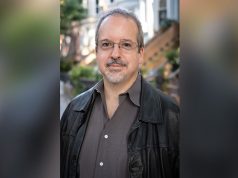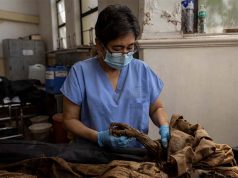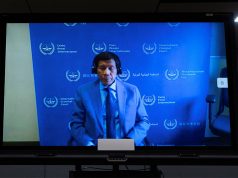Philippine National Police chief Ronald dela Rosa stood by anti-narcotics officers and rejected a Reuters investigation that pointed to a pattern of police sending corpses of drug suspects to hospitals to destroy crime scene evidence and hide executions.
President Rodrigo Duterte took office a year ago, launching a bloody war on drugs that has killed thousands of Filipinos.
In a television interview on Friday to mark the anniversary, Dela Rosa appeared irritated by questions about the Reuters report, published on Thursday, and said police carrying out anti-drugs operations had a duty to save lives even when encountering violent resistance.
He said police were not medically qualified to determine whether a victim was dead or alive and sent victims to hospital as part of operational procedure.
“What do you want, we let the wounded die? You don’t want us to rescue his life?” he told news channel ANC.
The Reuters investigation analyzed crime data from two of Metro Manila’s five police districts and included accounts of doctors, witnesses, law enforcement officials and victims’ families.
READ THE SPECIAL REPORT HERE:
DEAD ON ARRIVAL | Cops use hospitals to hide drug war killings
It showed a pattern of police sending dead bodies to hospitals, preventing thorough crime scene investigations from taking place after the killing of drug suspects.
Dela Rosa said Reuters, which has produced a series of in-depth reports into the war on drugs that have questioned official accounts, was “looking for faults” in the police.
“PNP is damned if you do, damned if you don’t. Reuters really is looking for faults in us. We have to stand by our police operational procedure that in case of an encounter, if a person is not yet declared dead by the physician, you need to bring him to the hospital.”
He added: “Who are the policemen to say they are dead? They are not medical practitioners. If we did not bring them to the hospitals, the relatives might sue us.”
A spokeswoman for Reuters said the news agency stood by its reporting.
Duterte’s bloody campaign has been condemned by human rights groups and alarmed Western countries due to the high death toll and allegations of systematic extrajudicial killings and cover-ups by police. The PNP rejects those allegations.
Few survivors
Reuters looked at police reports covering the first eight months of the drug war, which showed that in Quezon City Police District and neighboring Manila Police District, 301 victims were sent to hospital after police anti-drug operations. Only two survived and the rest were dead on arrival.
In nearly all cases where drug suspects have died during police operations in the year-long crackdown, the official accounts say police fired in self-defense. Police say they do not shoot to kill.
Activists, however, say the circumstances behind many of the killings in police sting operations point to executions. A Reuters investigation last year found that when police opened fire in anti-drug operations, they killed 97 percent of people they shot.
The data analyzed in the latest Reuters investigation shows a sharp increase in the number of drug suspects declared dead on arrival in the Quezon City and Manila districts each month.
There were 10 cases when the drug war started a year ago in July 2016, or 13 percent of police drug shooting deaths. By January 2017, the tally rose to 51 cases, or 85 percent, at a time when criticism of Duterte’s campaign intensified.
A police commander who spoke to Reuters on condition of anonymity said the increase was no coincidence and police were trying to prevent crime scene investigations and media attention that might show they were executing suspects.
Human rights groups say the anti-drugs crackdown, the signature policy of the populist Duterte, has been disastrous and has almost entirely targeted the poor, with most of those killed or arrested drug users and small-time dealers, with narcotics kingpins largely untouched.
Dela Rosa said police should not be disparaged for trying to save victims and the removal of bodies from a crime scene did not mean a proper investigation could not be carried out.
“Do not put malice in what the police does,” he said. “The crime scene is there even without the dead body.”










